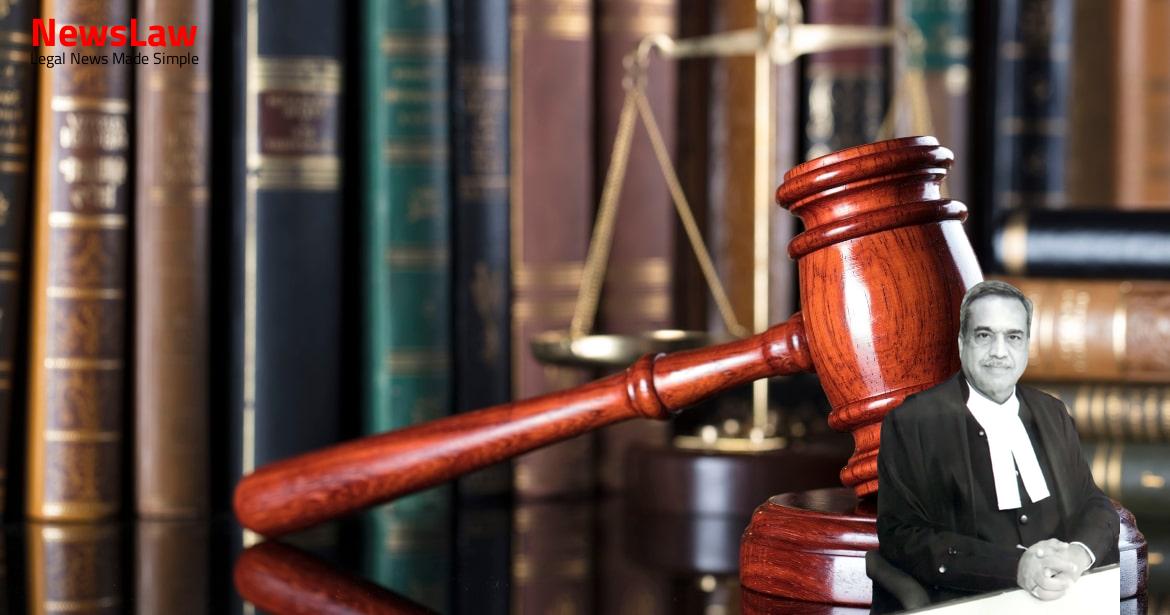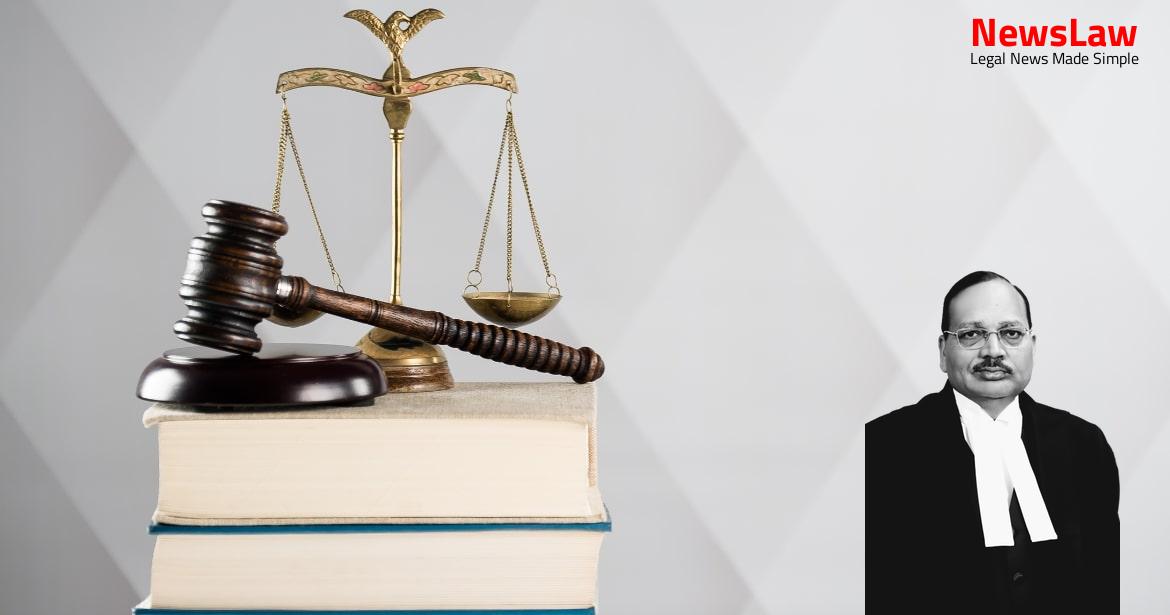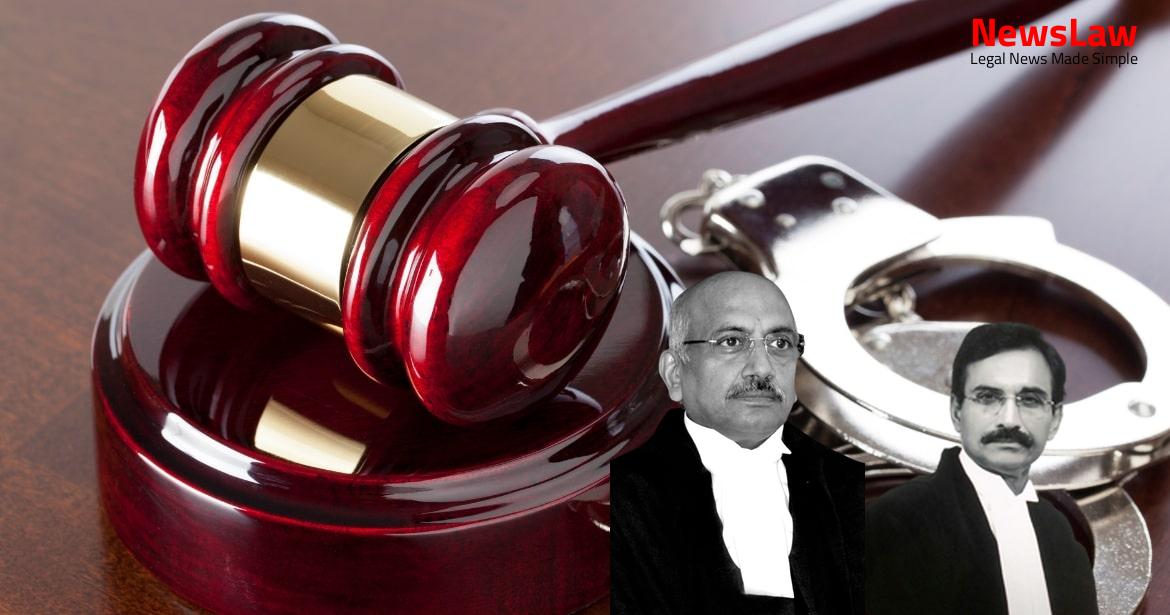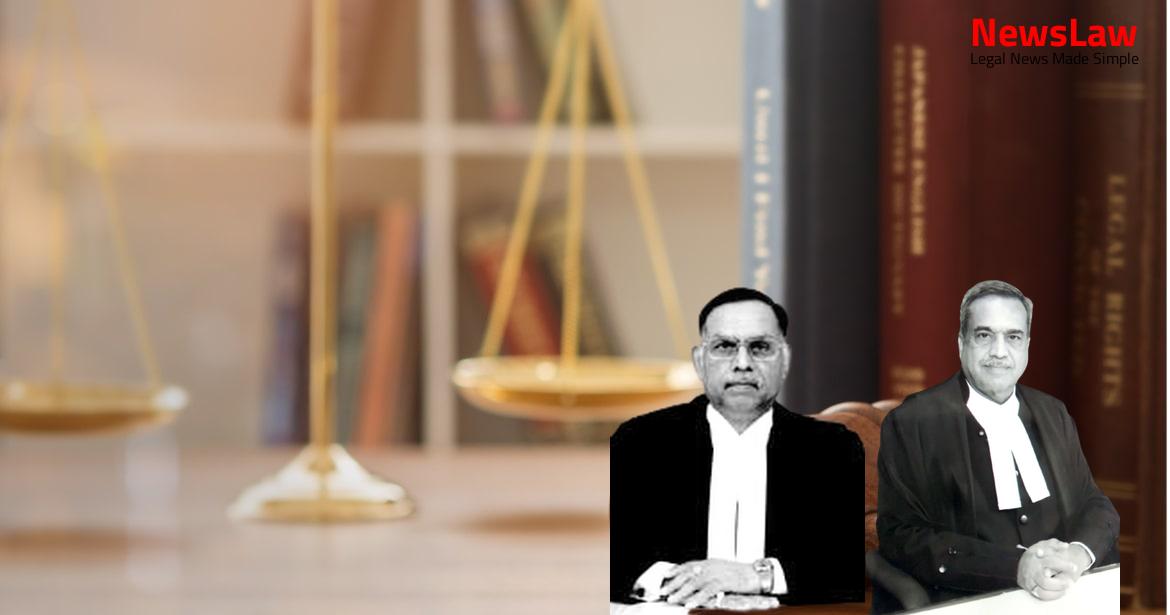This summary delves into the intricate legal analysis of compounding offences under the SEBI Act, shedding light on the court’s thorough examination of the matter. The case navigates through the complexities of compounding provisions, highlighting the significance of aligning court decisions with SEBI’s overarching objectives in prosecuting crimes. Stay tuned for a deep dive into the legal intricacies of compounding offences in the financial sector.
Facts
- SEBI filed a criminal complaint on 29 March 2000 alleging violations of regulations punishable under SEBI Act sections 24 and 27.
- The Chairperson of SEBI accepted the proposal for an offer to purchase shares from non-promoter shareholders prior to the company’s listing.
- The appellant and other promoters acquired shares to raise their holding to about 95% post IPO, following which the company got its shares delisted from various stock exchanges.
- The AO found that the appellant failed to comply with takeover regulations and violated provisions of the SEBI Act.
- The AO noted that the offer should have been made voluntarily by the appellant/promoters and not when proceedings under Section 11B were pending.
- The High Court’s view on the matter was called into question in the proceedings.
- SEBI’s High Powered Advisory Committee recommended against compounding the offences, leading to a decline in the compounding application.
- The criminal complaint proceedings continued, with the appellant refusing to cross-examine witnesses until the compounding application was decided.
- The Trial Judge rejected the compounding application, citing the need for SEBI’s consent.
- The High Court upheld the Trial Judge’s decision stating that SEBI’s consent is necessary for compounding.
- The AO considered the acquirers’ plan to delist the company and the offer made to investors, concluding no loss was caused.
- A revision petition challenging the Trial Judge’s decision was dismissed by the High Court.
- The application for compounding was filed in 2013 after a previous petition was rejected by the High Court.
- The promoters are willing to make a further offer even at this stage.
- The criminal complaint was filed before SEBI’s orders concluding no investor loss.
- The SEBI Act aims to protect investors, which was achieved through the penalty deposit.
- Section 24A grants powers to SAT and the Court to compound offences, without requiring SEBI’s consent.
Also Read: Electoral Malpractices in Mayor Election
Arguments
- Mr. Shyam Divan, learned Senior Counsel, appearing for the appellant, referenced the judgment in Meters and Instruments Pvt. Ltd. vs Kanchan Mehta where it was stated that an offence under Section 138 of the NI Act is primarily a civil wrong.
- The compounding application in this case was submitted belatedly on 14 October 2013 during the recording of evidence after the Trial Judge took cognizance of the criminal complaint.
- Mr. Mahesh Jethmalani, another Senior Counsel, argued that Section 24A of the SEBI Act does not require the consent of SEBI for compounding offences and that adding this requirement would be a re-writing of the statute.
- Mr. CU Singh, representing SEBI, opposed the submissions regarding criminal complaints filed on 29 March 2000.
- The criminal complaint outlined mis-utilization of IPO proceeds to purchase Company shares through related entities, manipulation of share price, artificial increase in share price to Rs. 23.5, and subsequent decrease.
- The IPO was oversubscribed by four times, indicating 75% of applicants were unable to obtain Company shares.
- Funds from the public issue went to six entities managed by the appellant or to promoters/directors to purchase shares.
- The SEBI Chairperson’s order dated 22 September 2000 concluded that the Company mis-utilized IPO funds to buy back its own shares.
Also Read: Balancing Power and Transparency: Electoral Bonds Struck Down, Disclosure Mandated
Analysis
- SEBI’s role and position in compounding offences under Section 24A is crucial despite not having a veto authority.
- The HPAC’s recommendation is essential and must be considered by the SAT or Court.
- The gravity of the offences under Section 24A must be taken into account during compounding.
- Comparison with compounding provisions under the NI Act and the CrPC highlights the specific nature of SEBI’s role.
- The power to compound offences under Section 24A is with the SAT or Court where the proceedings are pending.
- SEBI’s views provide expert insights on market stability and investor protection.
- Guidelines for compounding offences under Section 24A must be followed by the SAT or Court.
- Consideration of public impact and seriousness of the offence are crucial factors in compounding decisions.
- Chapter VA prohibits manipulative and deceptive devices, insider trading, and substantial acquisition of securities or control in violation of the Act and Regulations.
- The offence cannot be compounded under Section 24A without SEBI’s consent, despite statute not requiring such consent.
- In the current case, the compounding application should be allowed due to appellant being a senior citizen, company de-listed, and no investor loss shown.
- Section 24B(1) allows Union Government, upon SEBI’s recommendation, to grant immunity from prosecution for violations upon full disclosure.
- SEBI has the power to impose penalties in various situations such as failure to provide information, insider trading, and fraudulent trade practices.
- Chapter VIB establishes SAT’s jurisdiction, authority, and procedures for handling offenses under Section 24.
- Section 24A allows compounding of certain offenses, with SAT or the Court having exclusive power to compound.
- Offences punishable under Section 24 are compoundable if punishable with imprisonment, fine, or both.
- Provisions regarding compounding under Section 24A apply before or after the institution of proceedings and can be done by the SAT or Court.
- The interpretation of ‘punishable with fine’ in Section 24 determines the compounding eligibility of offenses.
- The Court in Damodar S Prabhu observed that the permissibility of the compounding of an offence is linked to the seriousness of the offence and the nature of the remedy provided.
- In cases of dishonor of a cheque, the compensatory aspect of the remedy should be prioritized over the punitive aspect.
- Cheque dishonor cases being compounded at late stages contributes to delays in justice delivery.
- The lack of explicit guidance in Section 147 of the NI Act on the stage at which compounding can occur causes challenges.
- Legislative sanction for compounding offences is based on the principles that private parties should be allowed to settle disputes if proper restitution is made, but this should not extend to offences of a public nature.
- A scheme under Section 391 of the Companies Act of 1956 does not automatically terminate proceedings for an offence under Section 138 of the NI Act.
- Compounding offences under the NI Act and SEBI Act have distinct provisions and procedures.
- The importance of aligning the powers of the Court with SEBI’s larger purpose was emphasized.
- Compounding should be encouraged as a primarily compensatory measure in cheque dishonor cases.
- SEBI’s consent may be necessary for compounding offences under the SEBI Act.
- The interpretation and application of compounding provisions must consider the statutory objectives of SEBI and societal interests in prosecuting crimes.
- Understanding the distinction between compounding and quashing of a case is essential for legal proceedings.
- Order for compounding was not warranted based on the nature of allegations
- SEBI’s decision to deny the request for compounding was not mala fide or manifestly arbitrary
- Judgment of the High Court of Delhi was affirmed based on the reasons provided in the judgment
- The matter was referred to the HPAC constituted by SEBI and presided over by a former judge of the Bombay High Court, which also denied the request for compounding
Also Read: Recall of Resolution Plan Approval: Legal Analysis
Decision
- The appeal has been disposed of.
- Impleadment and interventions have been allowed.
- Any pending application(s) have been disposed of.
Case Title: PRAKASH GUPTA Vs. SECURITIES AND EXCHANGE BOARD OF INDIA (2021 INSC 353)
Case Number: Crl.A. No.-000569-000569 / 2021



